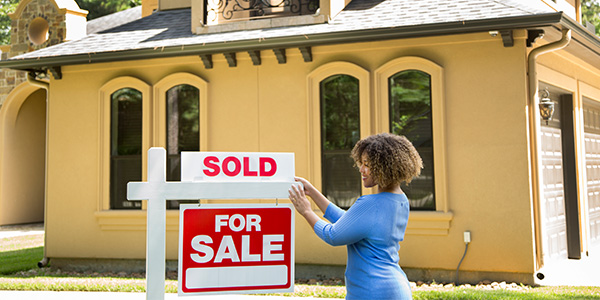Homeowners
Myth-Busting Cash-Out Refinances: What Homeowners Get Wrong
January 30, 2025
Homeownership is one of the biggest milestones that many Americans strive to achieve. That’s because it can also help to set them up financially.
Many homeowners have more financial options than they realize. If they need cash, they may be able to tap into their home equity through a variety of loans, including the often misunderstood cash-out refinance.
Cash-out refinances often get a bad rap because of the misconceptions surrounding the mortgage. Some believe the loan, which replaces your existing mortgage and provides you with additional cash, is only for emergencies. Others assume it’s too risky or comes with too many costs.
The reality is that, when used wisely, a cash-out refi can help homeowners consolidate debt, fund major expenses, or pay for home repairs and improvements. It can even help them set up new streams of income.
"You can use the cash-out for so many things. It doesn't have to be debt consolidation only," said Hamest Manoukian, a New American Funding loan officer based in Whittier, Calif. "You can build an accessory dwelling unit (ADU) in the back of your home, buy an investment property, or even fund a second home at the beach."
Cash-out refinances explained
A cash-out refinance replaces your existing mortgage with a new one, typically for a larger amount. You then receive the difference as cash.
The loan allows you to access the equity you’ve built in your home without selling the property. This can help you to fund big-ticket expenses, such as paying off high-interest debt or starting a business.
U.S. homeowners collectively held more than $35 trillion in equity as of the second quarter 2024, according to the U.S. Federal Reserve.
The average homeowner had more than $311,000 in equity as of the third quarter of 2024, according to real estate data firm CoreLogic.
That's a lot of untapped potential for those looking to improve their financial position.
However, homeowners should ensure that a cash-out refinance makes sense for them financially. They’re generally best for homeowners in need of larger sums of money.
You will have to pay closing costs for these loans, which is why they may not be the right fit for those in seek of smaller dollar mounts. Closing costs often total thousands of dollars, depending on the size of the loan, the value of the home, and other factors. (The costs typically include loan origination fees, title insurance, appraisal fees, and any legal costs.)
Once the loan closes, your mortgage payments may be higher as well. That’s because the amount you owe has increased.
You may also have a higher interest rate. This could happen if current mortgage rates are higher than what they were when you purchased your home or last refinanced your loan.
Myth #1: Cash-out refinances are only for emergencies
Many believe that a cash-out refinance should only be used as a last resort. That’s not always true. While it can help if you’re undergoing financial hardships, it's far from the only use case.
"If your property permits, you can build an ADU, rent it out, and create cash flow to help pay your mortgage. That's immediate appreciation in your home," said Manoukian.
Cash-out refinances can also be used to buy second homes or investment properties.
"Imagine cashing out on your single-family home to put 30% down on a four-unit rental property," said Manoukian. "Now you have four sources of income from one decision."
Myth #2: Cash-out refinances are too risky

The idea that cash-out refinancing puts you at financial risk often stems from a misunderstanding of how it works. If you borrow responsibly and have a clear plan for the funds, it may reduce your financial stress.
For example, consolidating high-interest credit card debt into a lower-interest mortgage payment can save you money over time.
Additionally, mortgage rates expected to come down a bit over the course of 2025 and beyond.
Homeowners who need the cash now can take out the loan. Then if mortgage rates drop as expected, they can look into refinancing their loan again to lock in a lower rate. (They will typically have to pay closing costs again in a new refinance.)
Myth #3: You lose home equity permanently in cash-out refinances
Some homeowners hesitate to tap into their homes, fearing they’re endangering their equity.
However, as property values rise and you pay down your mortgage, you can often rebuild equity over time.
Home prices have surged over the last decade. Nationally, the median home list price rose nearly 65% from November 2016 through November 2024, according to Realtor.com data.
Over time, homeowners may be able to reposition themselves for better loan terms or additional equity gains.
"You're not just borrowing money, you're setting yourself up for a stronger future," said Manoukian.
Hamest Manoukian, NMLS # 485360






 Smart Moves Start Here.
Smart Moves Start Here.